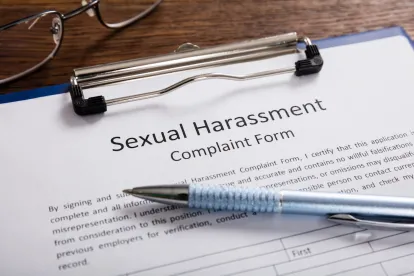In In re McDonald’s Corp. Stockholder Derivative Litigation, No. 2021-0324 (Del. Ch. Jan. 26, 2023), the Delaware Court of Chancery (Laster, V.C.) held that officers of a Delaware corporation are subject to a fiduciary duty of oversight as articulated in In re Caremark International Inc. Derivative Litigation, 698 A.2d 959 (Del. Ch. 1996). In doing so, the Court allowed stockholder derivative plaintiffs to proceed with oversight claims against the company’s former Global Chief People Officer, who allegedly presided over a corporate culture that condoned sexual harassment. The decision builds on Delaware jurisprudence to extend the duty of oversight to officers, not just directors, who will in most instances form part of the vanguard with respect to company efforts to implement effective reporting systems and/or to report on and respond to red flags regarding potential misfeasance at the company.
The company’s Executive Vice President and Global Chief People Officer served in that position from 2015 until he was terminated for cause in 2019. His role with the company included day-to-day responsibility for ensuring that the company provided its employees with a safe and respectful workplace. Plaintiff stockholders filed a Caremark claim against him derivatively, alleging that he consciously ignored “red flags” by ignoring incidents of sexual harassment at the company and by engaging in sexual harassment and misconduct himself.
Under Caremark, a plaintiff may state a claim for failure of oversight against a director where such director acted in bad faith by (1) utterly failing to implement any reporting or information systems or controls; or (2) having implemented such a system or controls, consciously failing to monitor or oversee their operations, including ignoring red flags. Prior tothis decision, there was no Delaware precedent confirming that the officers of a Delaware corporation, like its directors, owed a fiduciary duty of oversight.
Defendant moved to dismiss the stockholders’ complaint by arguing that officers are not subject to fiduciary duties of oversight. The Delaware Court of Chancery disagreed, noting several reasons why it made sense to impose duties of oversight on directors: (i) officers, as the day-to-day managers of a corporation are in a better position than directors to implement the information systems and respond to red flags within their domain of responsibility; (ii) the Delaware Supreme Court held in Gantler v. Stephens, 965 A.2d 695, 709 (Del. 2009), that the officers of Delaware corporations owe the same fiduciary duties as directors; and (iii) principles of agency require the officers to report issues implicating oversight of the corporation to the Board.
Importantly, the Court recognized that the scope of an officer’s duty of oversight is context-specific. Some officers, such as a the chief executive officer or president, have a very broad scope of authority that will render their duty of oversight similar to that of a corporation’s directors. Others, such as the chief financial officer, have a more limited scope of responsibility and will generally be responsible for oversight over their domain of responsibility. As is the case with respect to a Caremark claim against a director, “oversight liability for officers requires a showing of bad faith. The officer must consciously fail to make a good faith effort to establish information systems, or the officer must consciously ignore red flags.”
This decision further aligns the duties owed by the officers and directors of a Delaware corporation. Given the Delaware legislature’s recent amendment to Section 102(b)(7) of the Delaware General Corporation Law to allow Delaware corporations to exculpate its officers from monetary liability from a non-derivative breach of the duty of care, the directors of Delaware corporations should consider amending its certificate of incorporation to expressly insulate officers from monetary liability for breaches of their duty of care. Ultimately, because derivative claims are subject to stringent procedural safeguards, boards should ensure that they adequately investigate and respond to claims of officer misfeasance to avoid the risk of breaching their own duties of oversight.




 />i
/>i

